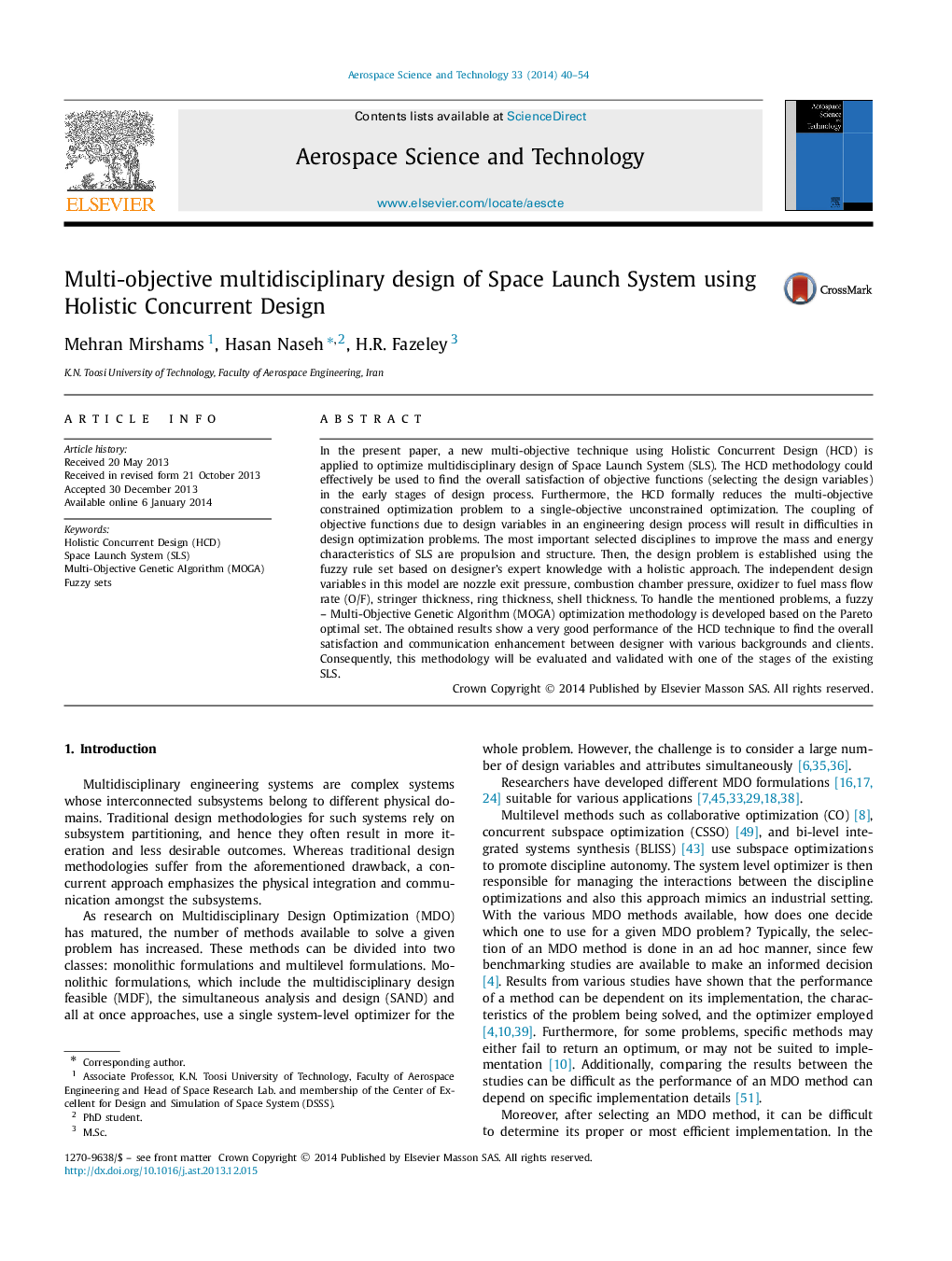| Article ID | Journal | Published Year | Pages | File Type |
|---|---|---|---|---|
| 1718124 | Aerospace Science and Technology | 2014 | 15 Pages |
In the present paper, a new multi-objective technique using Holistic Concurrent Design (HCD) is applied to optimize multidisciplinary design of Space Launch System (SLS). The HCD methodology could effectively be used to find the overall satisfaction of objective functions (selecting the design variables) in the early stages of design process. Furthermore, the HCD formally reduces the multi-objective constrained optimization problem to a single-objective unconstrained optimization. The coupling of objective functions due to design variables in an engineering design process will result in difficulties in design optimization problems. The most important selected disciplines to improve the mass and energy characteristics of SLS are propulsion and structure. Then, the design problem is established using the fuzzy rule set based on designer's expert knowledge with a holistic approach. The independent design variables in this model are nozzle exit pressure, combustion chamber pressure, oxidizer to fuel mass flow rate (O/F), stringer thickness, ring thickness, shell thickness. To handle the mentioned problems, a fuzzy – Multi-Objective Genetic Algorithm (MOGA) optimization methodology is developed based on the Pareto optimal set. The obtained results show a very good performance of the HCD technique to find the overall satisfaction and communication enhancement between designer with various backgrounds and clients. Consequently, this methodology will be evaluated and validated with one of the stages of the existing SLS.
